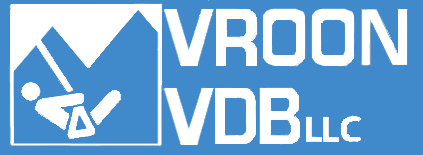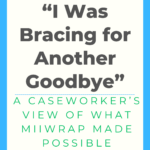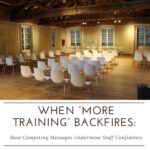Last week, we discussed the challenges of creating real training transfer using traditional training methods. The lingering question after last week’s blog is how will Susan do things differently in the future so she doesn’t end up with another Angela situation?
This time around, Susan is using our eLearning program, so we can answer that question exactly. One of the things you will notice about our program is that we collect a lot of proof points from all of our learners, including:
- Each module in our Foundations of MiiWrap eLearning Program starts with presenting new material in the form of videos, documents, and textbook sections. Learners have to pass an automated test to move forward. This test checks for basic comprehension.
- Then we have them watch a shadowing experience. They either answer quiz questions about what they did or didn’t see done in the shadowing videos, or they score them on rubrics. Either way, have concrete evidence of their understanding levels.
- Our scenario activities (which are comprised of behavioral rehearsals, real plays, read and respond scenarios, or written documentation exercises) all require learners to produce some combination of videos of themselves, score sheets rating their performance, and written explanations and answers. This lets us see what they can do AND see that they understand what they are doing at the same time.
- Finally, each module ends with specially crafted short essay questions that give the learners space to respond to the broader processes and themes of MiiWrap. Their answers let us see how they are thinking about what they are learning.
By the time they finish a module, we know whether or not they:
- understand the basic concepts covered, and how hard that was for them
- can identify the new skills and processes when they are done, and to what level of proficiency they are done
- can perform those skills and processes themselves, and how well they understand their own performance
- are developing a deeper understanding of how what they are learning fits into the overall model and theory of change
Our Module Coach Debriefing Guides help coaches gather all of this information in one place, with specific debriefing questions to ask along the way. By the time you finish debriefing a module with a learner using this system, there will be no doubt in your mind whether or not they learned what they need to learn.
There are other ways to collect this information without using an LMS – but they all require spending a lot more time teaching each learner. I called the last post Good Coaching Requires Good Data, because it’s true. Look at Susan and Angela – Susan worked really hard to teach Angela wraparound. She had no idea that Angela wasn’t learning, because she had to rely on social cues instead of hard evidence.
I’m sure you can think of people you have known like Angela in your own practice – wraparound staff who never really seemed to get it, or completely buy into it. A core obligation of any coach is to make sure that their learners are really learning. That doesn’t just happen. You need a plan. And your plan needs to involve real evidence – not just conversations.





Comments
[…] MiiWrap learning program. This is hard to do in a big classroom setting. It is much easier with a strong eLearning curriculum and clear coaching goals. But those assets aren’t enough alone. You as a coach and your program […]